
- Home
- India
- World
- Premium
- THE FEDERAL SPECIAL
- Analysis
- States
- Perspective
- Videos
- Sports
- Education
- Entertainment
- Elections
- Features
- Health
- Business
- Series
- In memoriam: Sheikh Mujibur Rahman
- Bishnoi's Men
- NEET TANGLE
- Economy Series
- Earth Day
- Kashmir’s Frozen Turbulence
- India@75
- The legend of Ramjanmabhoomi
- Liberalisation@30
- How to tame a dragon
- Celebrating biodiversity
- Farm Matters
- 50 days of solitude
- Bringing Migrants Home
- Budget 2020
- Jharkhand Votes
- The Federal Investigates
- The Federal Impact
- Vanishing Sand
- Gandhi @ 150
- Andhra Today
- Field report
- Operation Gulmarg
- Pandemic @1 Mn in India
- The Federal Year-End
- The Zero Year
- Science
- Brand studio
- Newsletter
- Elections 2024
- Events
- Home
- IndiaIndia
- World
- Analysis
- StatesStates
- PerspectivePerspective
- VideosVideos
- Sports
- Education
- Entertainment
- ElectionsElections
- Features
- Health
- BusinessBusiness
- Premium
- Loading...
Premium - Events
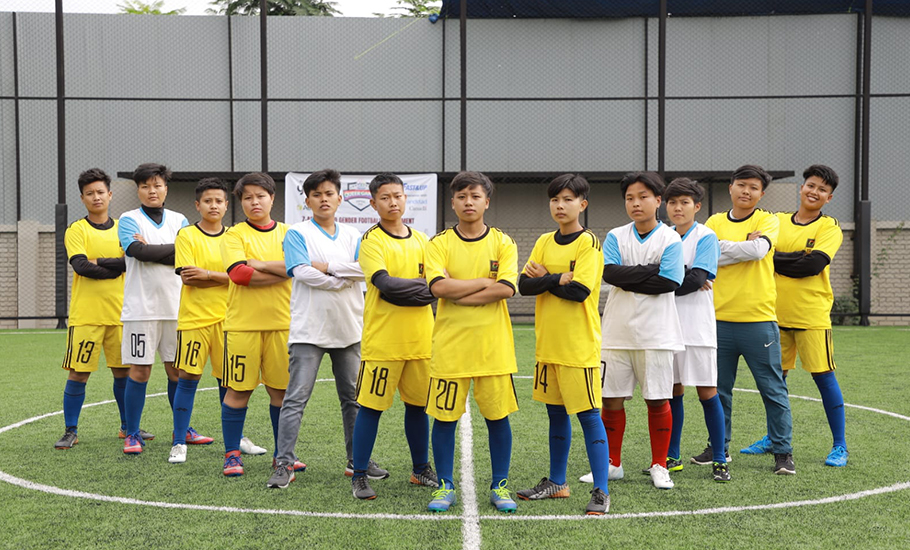
How close is India’s first transgender football team to its goal?

When Miller Khuman joined a football team in the spring of 2020, he had little idea how big a story it would become. The team that Miller, a transgender man, captains is not only India’s first but the only all-transgender football team started by Ya_All, a Manipur-based NGO. But their story was in the making much before 2020, when Ya_All launched the first Queer Games in 2018. Within two...
When Miller Khuman joined a football team in the spring of 2020, he had little idea how big a story it would become. The team that Miller, a transgender man, captains is not only India’s first but the only all-transgender football team started by Ya_All, a Manipur-based NGO.
But their story was in the making much before 2020, when Ya_All launched the first Queer Games in 2018. Within two years, Ya_All was ready with a 14-member squad. Soon, as it had hoped, the team managed to catch mainstream media attention with a number of big and small publications featuring the extraordinary achievement. For a moment, the big headlines and glossy photographs of the team splashed across the media offered hope that trans inclusion or their safety and fairness in sports, as well as in regular life, was finally getting mainstream acceptance.
But that was that.
Two years and a life-altering pandemic later, the country’s lone football team for the third gender is trying hard to get registered under the All Manipur Football Association as a third gender football team. As if that was not enough, Miller and the others were asked to register as a women’s team because the government was yet to come up with a policy to recognise third gender players. They were told that since the players in the team were “all born as women, they can register as a women’s team only”.
“They don’t understand. That will negate the entire purpose and undo the years of struggle and the distance we have covered so far,” says Miller.
All this, however, hasn’t shaken the confidence of either Miller or his teammates or those working with the team every inch of the way. They know this is just the beginning.
“It has been a difficult journey for me since childhood,” says Miller, 27.
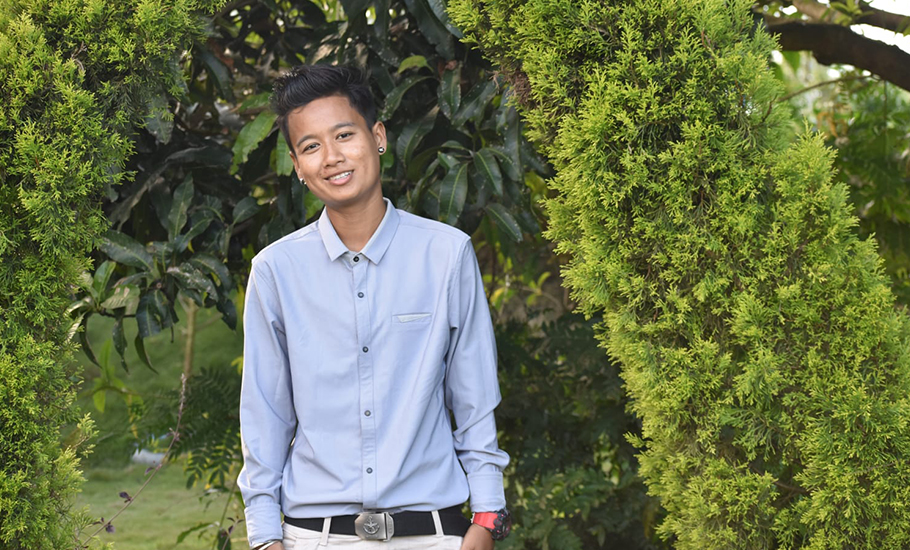
‘Not a tomboy’
Dribbling the black and white football on the green grass playground in Imphal used to be the high point of Miller’s childhood days. The little girl went about carefree playing with other girls of her age in school until it struck her that there was something odd about their behaviour. “They were scared of playing with me. My classmates would often complain that I was too ‘boyish’ to play in a girls’ team. Although there was no blatant discrimination, soon I became the ‘tomboy’ of the class,” Miller tells The Federal.
That – tomboy – became her identity. “Everyone, from my friends to relatives, used to call me a tomboy. So much so that I too started believing that. I had no idea about different gender identities. Not until I completed my graduation from Chennai. When I finally came to understand that there are many people like me, it was also clear to me that ‘tomboy’ is not the right word for us. I came to know that there is a different umbrella term for us and ever since I have identified myself as a transgender man,” says Miller.
The discovery was liberating and changed a lot of things for Miller. What did not change, however, was the love for football.
Soon after, Miller became part of the Ya_All ‘revolution’ (The word Ya-All means revolution in Meitei language). The football club is the brainchild of Ya_All founder Sadam Hanjabam, who wants to use the state’s most popular game to smash stereotypes about the queer community that are based on their sexual orientations, gender identities, or gender expressions.
Talking about the club’s goal, Miller, who happens to be one of the founding members of the club, says the journey to change the society’s outlook towards the community is long and winding. He rues that the society just refuses to accept their presence despite their existence in cultures and literatures across the world since ancient times.
‘Not a fad’
The community found mention in the New Testament of the Bible that talks about an Ethiopian eunuch converting to Christianity. The holy book also quotes Jesus Christ as saying, “There are eunuchs, who have been so from birth, and there are eunuchs who have been made eunuchs by others, and there are eunuchs who have made themselves eunuchs for the sake of the kingdom of heaven.” (Matthew 19:12).
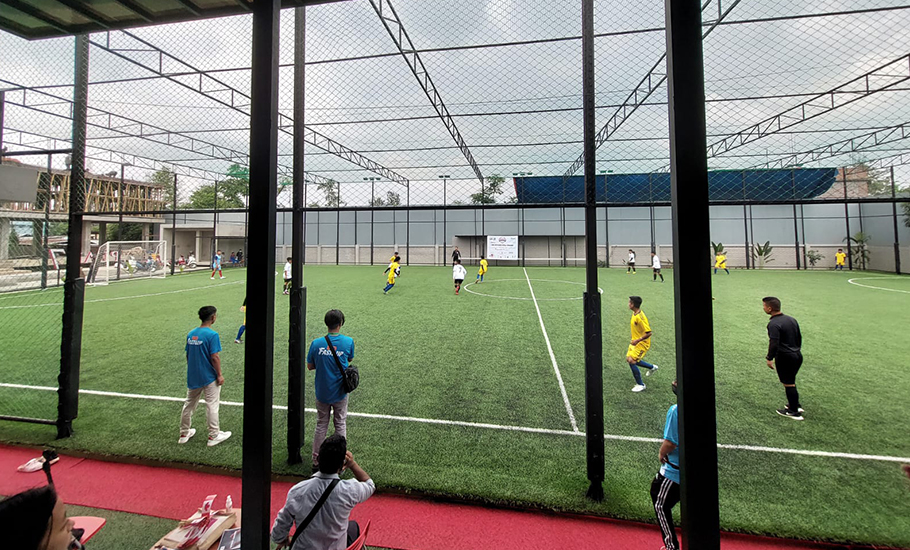
In ancient Rome, priests of goddess Cybele and her consort Attis were eunuchs. They were called Galli.
There are also several references to the community in Hindu mythology and religious texts such as the Mahabharata and the Ramayana. The Kama Sutra calls them ‘tritiya-prakriti’ or third gender.
In Miller’s own Manipur, Nupi Shabis (male artists playing women’s roles) have been an integral part of the popular community art form, Shumang Leela, which literally means courtyard plays, for over 100 years. Many transgender people have been donning the role of Nupi Shabis for years because there they find a sort of acceptance to their identity.
But that acceptance, many Nupi Shabis often say, is limited to the stage despite its rich heritage and history. Coming off the stage, they mostly end up in beauty parlours even though many of them are well-educated. More than half of Imphal’s beauty parlours are run by members of the non-binary community.
Even though Manipur is considered to be largely tolerant of the transgender people who are believed to be leading a relatively better life (in terms of social acceptance) in the state compared to other parts of the country, it’s is still difficult for trans people to get a job. “Whenever we go to fill a job form, there are mostly two categories – male and female. Of course, nowadays some organisations have included ‘others’ as a category but there are other issues at play,” says Miller, who is doing masters in South-East Asian studies from Manipur University.
Even after getting a job, he adds, there are issues over dress code, use of restrooms etc. “There are no restrooms for the third gender. If we enter the women’s restroom, we are looked upon with suspicion. More often than not women give us those stares…as if we will grope them or something.”
“I don’t blame anyone. Even my parents found it difficult to understand me. They hardly had any understanding about the existence of a third gender beyond the binary of male and female. They used to think this was some kind of a fad,” says Miller, whose life turned a corner after he got the opportunity to play football without having to hide his real identity and without any inhibition when Hanjabam decided to form an exclusive team for the trans community.
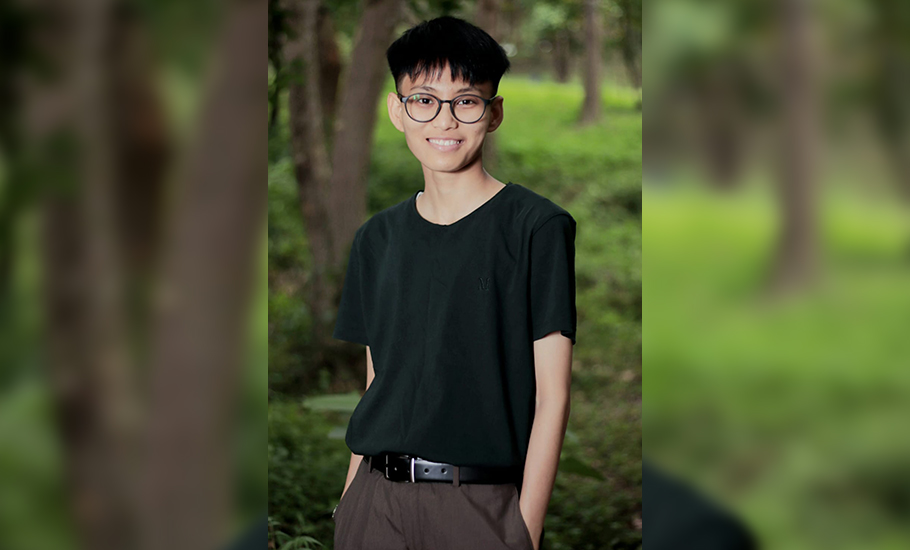
A new beginning
When the Queer Games started in 2018, not everyone playing now was ready to come out and participate. But the idea slowly found takers. The fact that there was a decent audience to see transgender men and transgender women playing football among themselves also made a huge difference. The first event itself was attended by more than 100 people to see a ‘seven-a-side match’ being played among the squad. As the event drew considerable media attention, the word soon got out of Imphal far and wide.
Following their successful show in 2018, Hanjabam decided to cobble up an all-transgender football team. Their dream finally came true in 2020 with a 14-member team made up of transgender men, becoming India’s first transgender football team.
Ever since the Queer Games have been generating the same kind of excitement with more and more transmen agreeing to join the team each year. The second edition in March 2019 was held in five cities (Kohima, Mizoram, Darjeeling, Imphal, Guwahati). “Even though things had to be scaled down a bit because of the pandemic in the past two years, the Queer Games 2022 had an encouraging participation from both audience and players,” says Dongsaeng, the coordinator of the Ya All football club and also one of its founding members.
“We are getting a very good response. After knowing about our all-trans football team through social media, many have approached me from various parts of the state showing interest in joining the team and our mission,” adds Dongsaeng. The club now plans to form similar exclusive football teams at the district-level.
However, it’s mostly transgender men who have shown interest in playing the game. Even though Ya_All wanted to create a team of transgender women as well, they didn’t find enough participants. “Most of the transgender women are employed in the beauty and fashion industry and they don’t have the time for sports. So for now, the team is limited to just transgender man,” says Miller.
According to Dongsaeng, they plan to conduct mixed-sporting events other than just football in the future.
“It’s not just sports. The whole thing has helped bring a big change in the outlook of the parents as well. They are now trying to understand their children better and are accepting them as they are. It’s a big change– slow but still big. Once the acceptance comes from one’s home, the society too will gradually accept them,” he adds.
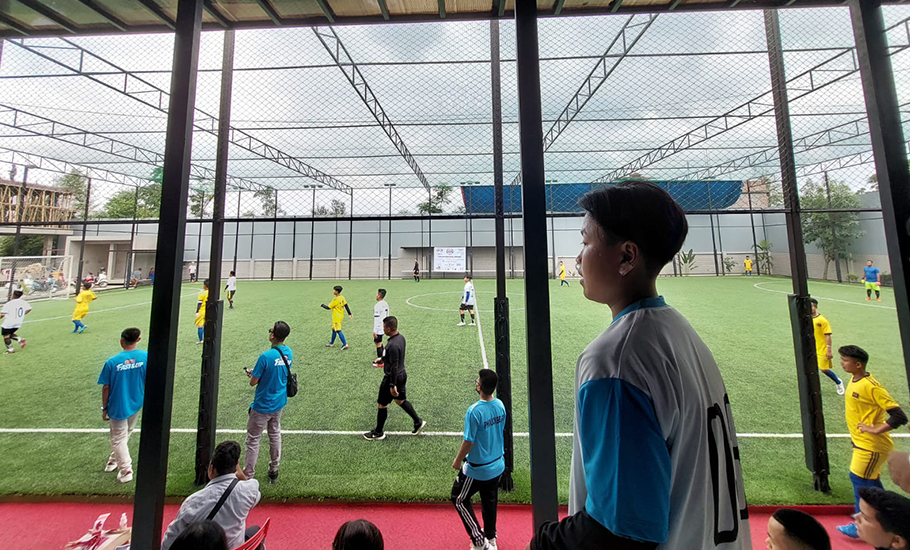
Miller agrees. “My parents had a lot of problems with my way of dressing and mannerisms earlier. Although it never got nasty, they would often express their displeasure openly. Now, they have made peace with it… Well, almost,” he laughs.
Miller too is ‘almost’ happy with the way things have turned out so far.
For now, the captain is preparing for banking exams since football as a career is not an option as of yet with no professional tournament for the transgender community.
“I wish one day there will be a World Cup for the transgender community, just as there are world cups for men and women,” Miller sighs.
